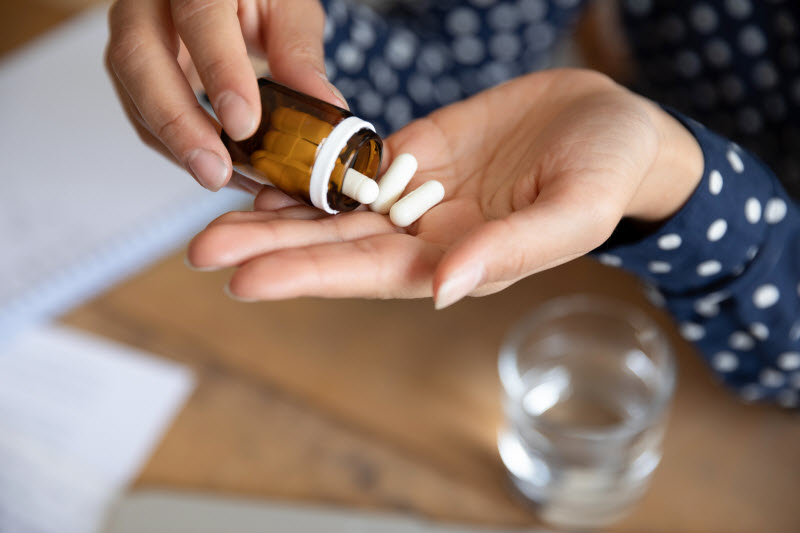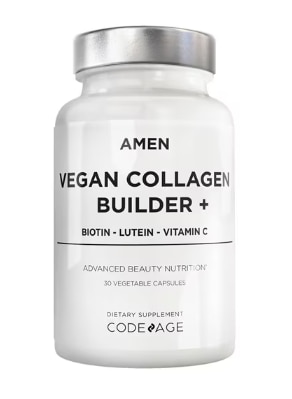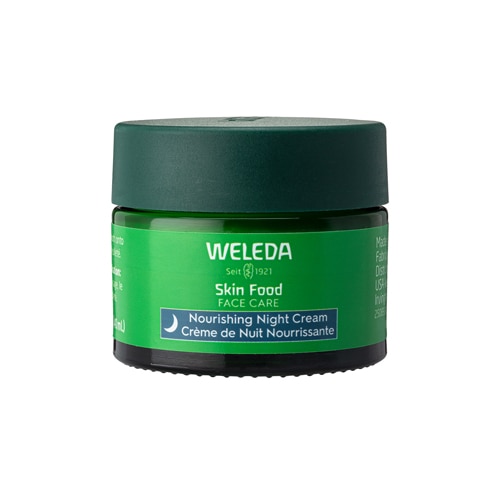Nearly everyone desires healthy, smooth and firm skin. After all, your skin often reflects personal habits, both good and bad. A shortage of sleep, a high-stress lifestyle, poor nutrition or lack of exercise can leave your skin dull, dark or irritated. But more crucially, your skin provides defense from the environment, including viruses, bacteria, pollutants and ultraviolet light. It also protects you from the wet and cold and helps prevent dehydration.

Inevitably, the skin ages, but this natural process can be
unnaturally sped along by exposure to radiation and pollution, smoking, alcohol,
poor nutrition and nutrient deficiencies due to stress. These factors can lead to a loss of collagen in the skin, which is the most plentiful protein in the extracellular matrix that makes up all of your connective tissues and is responsible for preserving the structure and functions of the skin.
Studies show that consuming collagen peptides through food sources can support the collagen synthesis that slows with aging. However, foods richest in collagen are derived from animal products, including bone broth, beef, chicken, fish, eggs and dairy. Consuming collagen directly from these foods is not an option for anyone committed to a plant-based or vegan lifestyle.
Fortunately, nature has a workaround.
Vegan collagen-boosting nutrients
Collagen acts like a rope, with three chains winding around each other to form a triple helix essential in forming collagen fibrils of extraordinary strength and ability to stretch. Young and healthy skin contains over 75% collagen, primarily synthesized within the deeper skin layers. With age, collagen production diminishes, leading to a loss of strength and stability of the collagen scaffold. The skin becomes thinner and drier, yielding the lines and wrinkles that form with diminished elasticity.
Improving the collagen production process requires enough nutrients to be delivered through the bloodstream.
Amino acids, which are most abundant in high-protein foods, are vital for collagen production, particularly glycine, proline, lysine and hydroxyproline. Although plant-based foods are typically short of a few essential ones, you can easily obtain collagen-boosting ones from plant-based protein sources.
- Glycine: Tofu, buckwheat, soybeans, oats, lupin beans, oat bran, navy beans
- Proline: Tofu, edamame, oats, navy beans, kamut, pinto beans, soybeans
- Hydroxyproline: Flax seed, pistachios, peanut butter, almonds, poppy seeds, kidney beans
- Lysine: Tofu, soybeans, lupin beans, soybeans, adzuki beans, lentils, split peas, buckwheat
Vitamin C, biotin and lutein also support your body's natural collagen production. Each plays a
crucial role in helping your body replenish its collagen, preventing skin from becoming thin and
protecting it from the harmful effects of the sun’s rays.
Biotin (vitamin B7) is a mainstay in skin and hair care. You’ll find biotin in eggs and dairy, and without enough, hair may start to thin, and face rashes can occur. Unfortunately, your body cannot make its own biotin, so getting enough through your diet or supplements is vital, and a deficiency can cause hair loss, brittle nails and skin infections. Biotin aids enzymes in metabolizing glucose, fatty acids and the amino acids that assemble proteins, including collagen. So, biotin ensures all the required nutrients for optimal collagen synthesis are available for your body.
 Why try a vegan collagen booster?
Why try a vegan collagen booster?
Consuming a diet rich in collagen-nourishing nutrients is a wise choice that will provide benefits far beyond healthy, youthful-looking skin. There are particular supplements designed to support the natural collagen production of your body, known as collagen boosters.
†
One such supplement is Codeage’s
AMEN Vegan Collagen Builder. It contains a combination of vitamin C, biotin, lutein, amino acids and organic fruits and plants like blueberry, cranberry, strawberry, lemon peel and grape seed extract that help support the body's natural collagen production.
† It also provides a range of antioxidants to
help your body defend against skin aging and support cell health.
† Moreover, this supplement is plant-based, making it the perfect substitute for animal-derived collagen, and is also non-GMO, soy free and gluten-free.
Healthy habits to support collagen production
To maintain the natural collagen in your body, it's essential to prioritize a healthy and balanced diet, which, for vegans, means including protein-rich foods such as beans, seeds, nuts and grains. Some additional worthwhile habits you can embrace that promote your body's collagen production include:
- Limit sunlight exposure to 10-20 minutes of mid-day sun 3-4 times weekly for enough vitamin D; otherwise, always wear sunscreen.
- Manage stress levels as best you can; high stress levels can cause nutrient deficiencies and increase cortisol, which reduces collagen production.
- Exercise regularly, as research shows, being active can slow down cell activity linked to skin aging.
- Get adequate sleep, which means 7-9 hours per night for an average person, focusing on a consistent bedtime and wake schedule, dark, quiet, and cool room.
- Avoid smoking or secondhand smoke exposure, and limit alcohol consumption.
†These statements have not been approved by the Food and Drug Administration. These products are not intended to diagnose, treat, cure or prevent disease.
 Inevitably, the skin ages, but this natural process can be unnaturally sped along by exposure to radiation and pollution, smoking, alcohol, poor nutrition and nutrient deficiencies due to stress. These factors can lead to a loss of collagen in the skin, which is the most plentiful protein in the extracellular matrix that makes up all of your connective tissues and is responsible for preserving the structure and functions of the skin.
Studies show that consuming collagen peptides through food sources can support the collagen synthesis that slows with aging. However, foods richest in collagen are derived from animal products, including bone broth, beef, chicken, fish, eggs and dairy. Consuming collagen directly from these foods is not an option for anyone committed to a plant-based or vegan lifestyle.
Fortunately, nature has a workaround.
Inevitably, the skin ages, but this natural process can be unnaturally sped along by exposure to radiation and pollution, smoking, alcohol, poor nutrition and nutrient deficiencies due to stress. These factors can lead to a loss of collagen in the skin, which is the most plentiful protein in the extracellular matrix that makes up all of your connective tissues and is responsible for preserving the structure and functions of the skin.
Studies show that consuming collagen peptides through food sources can support the collagen synthesis that slows with aging. However, foods richest in collagen are derived from animal products, including bone broth, beef, chicken, fish, eggs and dairy. Consuming collagen directly from these foods is not an option for anyone committed to a plant-based or vegan lifestyle.
Fortunately, nature has a workaround.
 Why try a vegan collagen booster?
Why try a vegan collagen booster?


